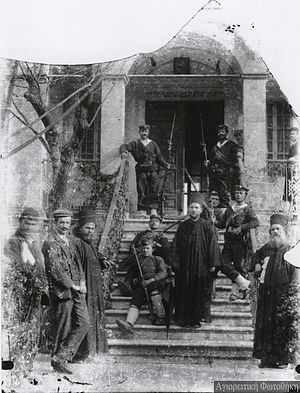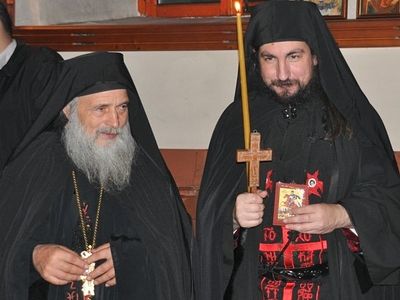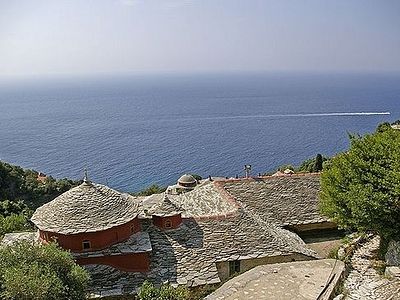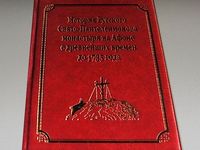Athens, October 14, 2013
 The destroyer "Storm", who took part in the liberation of Mount Athos
The destroyer "Storm", who took part in the liberation of Mount Athos
Plans for the celebrations of the 100th anniversary of integration of Holy Mount Athos to Greece were very promising, reports Romphea; however, it will all end in no more than a visit to Mt. Athos by Patriarch Bartholomew I of Constantinople and a thanksgiving prayer service that was to be celebrated in Karyes on Wednesday, October 16.
The Greek government has not been invited to the celebration, reports Romphea, pointing to the connection of this event with the dispute between the Athonites and the Greek government over the taxation Monastic real estate located outside the Holy Mountain. And as a solution has not yet been found, the Holy Kinot has thus "humbled" the state.
In its turn, the highest governing body of the state of Athos, which organized the commission to prepare for the festive events, whose representatives met in Athens with the prime-minister Antonis Samaras, has "frozen" all Greece’s plans regarding this event.
What has caused this break between celebrants of one of the greatest historical events in the Orthodox world? The situation goes back to Vatopedi, reports Romphea.
After the beginning of the Greek financial crisis, George Alogoskoufis, then minister for the economy, decided to impose taxes on the monasteries’ real property situated outside Athos and not in the jurisdiction of the self-government of the Monastic republic.
The opposition of the Athonite community was stormy because the monasteries survive mainly owing to this property, thus covering the expenses for services and reception of pilgrims. Moreover, preservation of relics and shrines, the present repair works, and maintenance of the buildings require funds.
Calls to the government and competent ministers for exemption from taxes proved unsuccessful. The state expressed "its own understanding" and stated in reply that it not would be logical for a law-based society to impose taxes on a small flat of an ordinary citizen and at the same time to keep tax immunity on valuable property, even if it belongs to holy monasteries.
The "cold war" on the issue of taxation continues, leaving its imprints on all relations between Greece and the monastic republic.
Last year, ideas were even expressed (extreme ones, of course) that it was time for the Holy Kinot to seek the help of Orthodox Slavic states.
With active interference from more dispassionate Athonites it was possible to prevent such a course of events, but now the issue of the anniversary has crept into this "taxation confrontation".
The persistence with which Athos is trying to solve this problem is interpreted by the Greek government as a sort of blackmail. According to a source in the Ministry for External Affairs, in such a situation "there is no festival for the government..."
Thus, instead of a festive occasion with the participation of foreign leaders and distinguished personalities, the historical date is being celebrated with only a thanksgiving service and a Litia (funeral service) for monastery representatives who signed the agreement with a representative of the Turkish Sultan.
 Sailors in Karyes. Beginning of November 1912
Sailors in Karyes. Beginning of November 1912
However, "From 1912 to 1923 there was ongoing confusion surrounding the Holy Mountain’s sovereignty. The London treaty of May 1913 authorized the major world powers to decide the peninsula’s fate.
The London conference of ambassadors in November of the same year with participation of Russia fixed the "independent and neutral" autonomy of Athos, but the agreement between Bucharest and Athens in 1913 included the Mountain in the newly formed state of Greece. Later, the Sevres agreement (August 1920) provided by law for the jurisdiction of Greece over the territory of Athos. This process was completely finished in 1923 with the Lausanne agreement.
The charter of Holy Mount Athos, ratified in 1926, establishes the self-government of the state of Athos.



